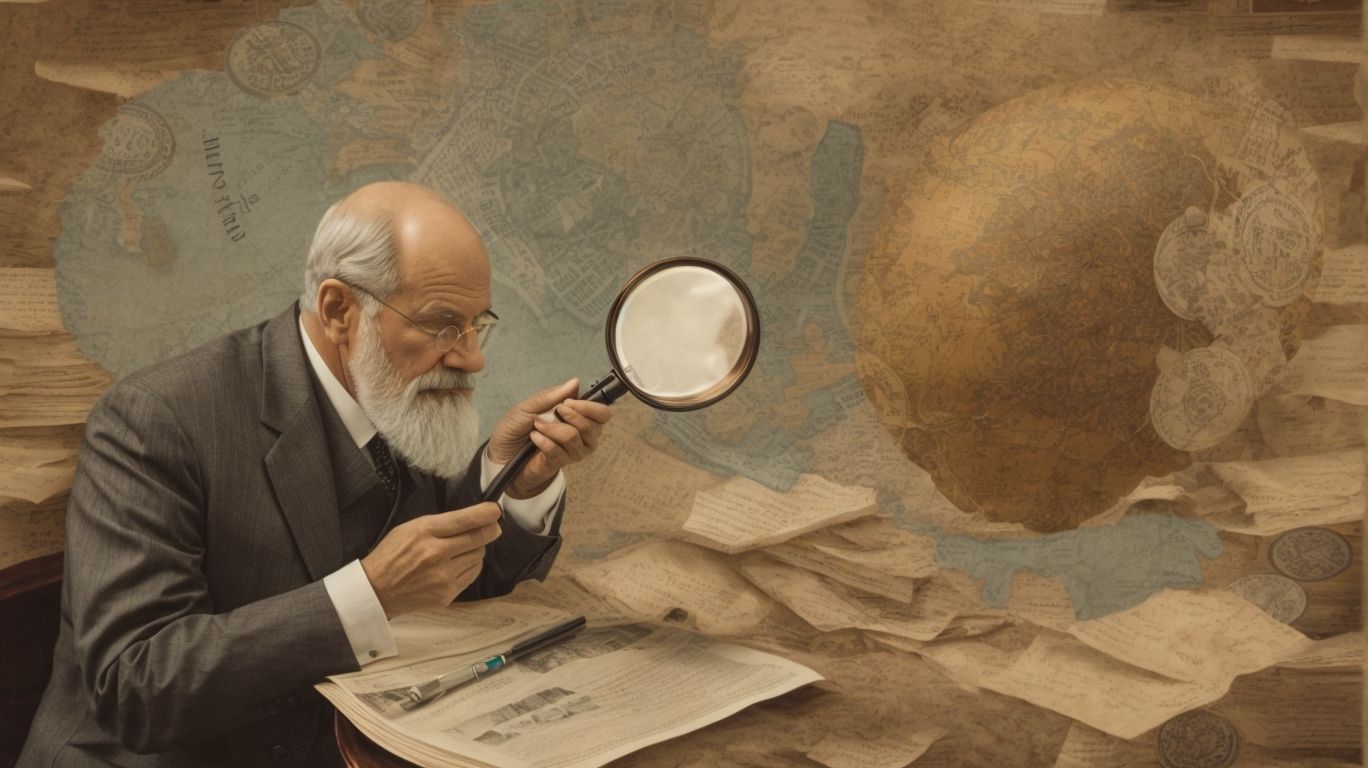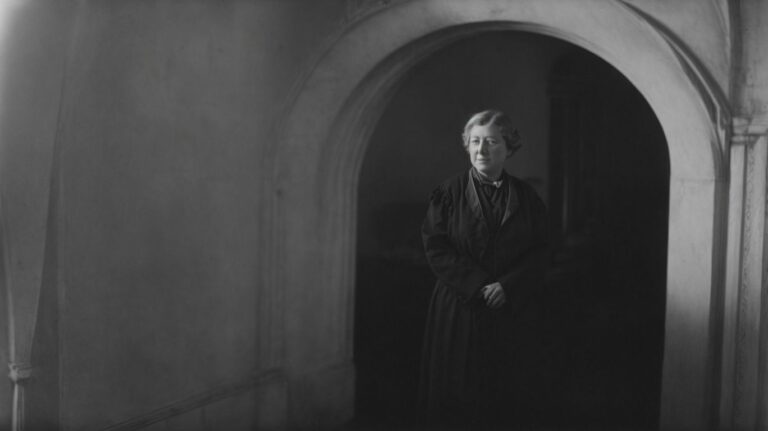Sigmund Freud, a prominent figure in the field of psychology, made significant contributions that continue to shape our understanding of human behavior. From his development of psychoanalysis to his theories on personality development and defense mechanisms, Freud’s work has had a lasting impact on the field.
His theories have also faced criticism for their lack of empirical evidence and controversial practices. Despite this, Freud’s work remains relevant today, influencing therapy, popular culture, and ongoing debates within the field of psychology.
Contents
Who Is Sigmund Freud?
Sigmund Freud, a pioneer in the field of psychology, was one of the most influential psychologists of the 20th century.
Freud’s groundbreaking work revolutionized the understanding of the human mind, particularly with his development of psychoanalysis, a method to explore the depths of the unconscious mind. His theories, such as the id, ego, and superego, shed light on the complexities of human behavior.
One of his major works, ‘The Interpretation of Dreams,’ delved into the significance of dreams as a gateway to the unconscious. Freud’s impact on psychology and its various branches is indisputable, shaping the way mental health professionals approach therapy and understanding the inner workings of the mind.
What Are the Major Contributions of Freud to Psychology?
Freud‘s major contributions to psychology include the development of psychoanalysis, pioneering theories on personality, and groundbreaking work in dream analysis.
Sigmund Freud delved deeply into understanding the human psyche, emphasizing the role of unconscious motivations in shaping behavior. His theory of psychosexual development, which outlines stages from infancy to adulthood, highlights the significance of early experiences in forming personality.
Moreover, Freud introduced the concept of defense mechanisms, mechanisms the mind employs to protect itself from anxiety. These mechanisms, like repression, projection, and rationalization, play a crucial role in how individuals cope with internal conflicts and external stressors.
Psychoanalysis
Freud’s psychoanalysis focused on exploring the unconscious mind and its influence on behavior, leading to the establishment of the Vienna Psychoanalytic Society.
In Freud’s psychoanalytic approach, the unconscious mind played a central role in shaping an individual’s thoughts, emotions, and actions. He believed that many psychological issues stemmed from repressed memories and desires residing in the unconscious.
Through his collaboration with the Vienna Psychoanalytic Society, Freud introduced groundbreaking concepts such as the Freudian slip, where unconscious thoughts manifest in verbal mistakes or slips of the tongue. This phenomenon highlighted the hidden workings of the mind and the impact of repressed content on everyday interactions and behaviors.
Theories of Personality Development
Freud’s theories of personality development, including concepts like the Oedipus complex, revolutionized the understanding of mental health and human behavior.
Freud’s structural model of the psyche, composed of the id, ego, and superego, provided a framework for his ideas on the unconscious mind’s influence on behavior. The id represented primal, instinctual drives, the ego functioned as the mediator between impulses and reality, and the superego acted as the internalized moral compass.
Freud’s views on the Oedipus complex, where a child develops unconscious desires for the opposite-sex parent and hostility toward the same-sex parent, highlighted the importance of childhood experiences in shaping adult personalities. This theory sparked debates and contributed to the development of neo-Freudian theories by prominent figures like Carl Jung and Alfred Adler.
Defense Mechanisms
Freud’s exploration of defense mechanisms shed light on how individuals cope with psychological conflicts, although this area sparked controversy within the field.
One of Freud’s most famous defense mechanisms is repression, where uncomfortable thoughts and memories are pushed into the unconscious to protect the individual from inner conflict. Additionally, Freud outlined other defense mechanisms such as denial, projection, and rationalization, all serving to safeguard the ego from anxiety and discomfort. Critics like Carl Jung and Alfred Adler have raised concerns about the universality and applicability of these mechanisms, arguing that cultural and individual differences may play a significant role in how they manifest.
How Did Freud’s Theories Impact the Field of Psychology?
Freud’s theories profoundly influenced the field of psychology, shaping modern approaches to mental health and cultural understanding.
His groundbreaking concepts like the id, ego, and superego transformed the way professionals view and analyze human behavior.
Freud’s emphasis on childhood experiences and the unconscious mind paved the way for psychodynamic therapy, a cornerstone in psychoanalysis and mental health treatment.
His work fostered groundbreaking discussions on complex topics such as defense mechanisms, dream analysis, and the Oedipus complex, giving rise to a new era of understanding mental health conditions.
Influence on Therapy and Treatment
Freud’s influence on therapy and treatment methodologies emphasized deep exploration of patients’ unconscious conflicts, often leading to cathartic breakthroughs.
Freud employed various therapeutic techniques to delve into the deeper layers of the unconscious mind during psychoanalytic sessions. Key methods included free association, dream analysis, and interpretation of slips of the tongue or hand. These tools allowed patients like Anna O. and Little Hans to access repressed memories and emotions, gaining insights into their psychological struggles. Notable cases, such as Dora and Rat Man, showcased Freud’s use of transference and countertransference dynamics to uncover unresolved conflicts and provide a platform for catharsis. Through skilled interpretation and analysis, Freud aimed to help patients achieve emotional release and understanding, promoting healing and self-awareness.
Influence on Understanding Human Behavior
Freud’s influence on understanding human behavior extended to dream interpretation and the subconscious mind, revealing hidden motivations and desires.
His revolutionary ideas delved into the subconscious mind, proposing that dreams serve as a pathway to unravel repressed memories, fears, and desires. Through his psychoanalytic approach, Freud emphasized the significance of interpreting symbols and manifestations in dreams to decode the intricacies of one’s psyche.
Freud’s contributions paved the way for modern psychology, shaping the fields of psychoanalysis and dream analysis. He remains one of the most influential psychologists, whose theories on the unconscious mind continue to influence therapeutic practices and the understanding of human behavior.
Influence on Other Theories and Approaches
Freud’s influence on other theories and approaches in psychology spurred the development of neo-Freudian perspectives, though his own popularity faced a decline in later years.
Neo-Freudians, such as Alfred Adler and Carl Jung, built upon Freud’s work, emphasizing different aspects of the human psyche like social motivations and spiritualities.
After Freud, there was a shift towards exploring individual psychology, leading to in-depth case studies and a focus on interpersonal relationships in psychoanalytic literature.
One key factor in the decline of Freud’s academic citations was the rise of evidence-based research methodologies, where empirical data gained priority over theoretical constructs in psychology.
What Are the Criticisms of Freud’s Theories?
Critics of Freud’s theories have highlighted concerns such as the lack of empirical evidence, controversial practices, and limited focus on social and cultural factors.
Freud’s ideas faced criticism for the highly subjective nature of psychoanalysis, which relied heavily on interpretations of unconscious desires rather than observable data. The controversy surrounding his theories also stemmed from their often sexual or violent themes, raising ethical concerns about the potential harm caused by diving into patients’ deepest desires.
Freud’s insistence on universal psychological structures overlooked the diverse influences of culture and society on individuals’ beliefs and behaviors, leading to critiques of his work as culturally insensitive and limited in its consideration of broader societal factors.
Lack of Empirical Evidence
One common criticism of Freud’s theories revolves around the lack of empirical evidence supporting many of his psychoanalytic concepts, raising questions about the scientific validity of his work.
While Freud’s major works like ‘The Interpretation of Dreams’ and ‘The Psychopathology of Everyday Life’ have left a lasting impact on the field of psychology, modern researchers and scholars have often scrutinized the lack of empirical basis in his theories. With the advancement of neuroscience and cognitive psychology, areas such as consciousness, memory, and emotions have been explored through more empirical and scientific methods, challenging Freud’s assertions.
This ongoing debate within the field of psychology highlights the continuous evolution of understanding mental health and psychopathology, incorporating diverse perspectives and research methodologies to shape contemporary psychological theories.
Controversial and Unethical Practices
Freud’s theories have been criticized for their controversial and at times unethical practices, leading to debates about the ethical implications of psychoanalytic therapy.
One of the most debated aspects of Freud’s work is his reliance on dream analysis as a means of uncovering unconscious thoughts and desires. While some psychologists argue that dream interpretation can provide valuable insights into a person’s psyche, others criticize it as subjective and lacking empirical evidence.
Freud’s concept of defense mechanisms, such as repression and projection, has sparked ethical debates within the field of psychology. Critics argue that labeling certain behaviors as defense mechanisms can pathologize normal human responses.
These controversies have had a lasting impact on modern therapeutic approaches, with many therapists incorporating elements of Freudian theory while also integrating more evidence-based and ethically sound practices.
Limited Focus on Cultural and Social Factors
Critics have pointed out that Freud’s theories had a limited focus on cultural and social factors, a critique that contributed to their decline in relevance in contemporary psychology.
While Freud’s emphasis on unconscious drives and childhood experiences was groundbreaking, it was criticized for overlooking the impact of cultural differences and societal norms on an individual’s psyche.
In contrast, influential psychologists such as Carl Jung and Alfred Adler explored the intersection of culture and psychology, paving the way for a more holistic understanding of human behavior. This shift in focus highlighted the importance of considering cultural contexts in psychological theories, a dimension that Freudian psychoanalysis notably lacked. As a result, contemporary psychology has increasingly moved towards incorporating diverse perspectives and acknowledging the profound influence of culture on individual development.
What Is the Current Relevance of Freud’s Work in Psychology?
Despite criticisms, Freud’s work remains relevant in the field of psychology, with continued use of psychoanalysis in therapy, ongoing debates on his theories, and his influence on popular culture and media.
Freud’s groundbreaking concepts such as the unconscious mind, defense mechanisms, and the Oedipus complex have left a lasting impact on psychology and cultural discourse.
His notion of the id, ego, and superego still shapes how we understand human behavior.
The idea of repression and the role of childhood experiences in shaping adult personality are widely discussed aspects of his work.
The enduring legacy of Freud extends beyond academic circles, influencing literature, films, and even everyday language through terms like ‘Freudian slip’ or ‘ego boost’.
Continued Use of Psychoanalysis in Therapy
Psychoanalysis, rooted in Freud’s work, continues to be utilized in therapy settings, offering a unique approach to understanding and addressing mental health issues.
The use of psychoanalytic techniques in therapy involves delving deep into the unconscious mind to explore repressed memories and desires, often by analyzing dreams and uncovering defense mechanisms. The applications of Freud’s concepts in mental health treatment have paved the way for a better understanding of human behavior and psyche. Even in contemporary therapeutic practices, the enduring legacy of psychoanalysis can be seen through the emphasis on understanding the root causes of psychological distress and promoting self-awareness and personal growth.
Influence on Popular Culture and Media
Freud’s theories have permeated popular culture and media, shaping narratives, character development, and psychological themes in various forms of entertainment.
This integration of Freudian concepts in storytelling can be seen in the exploration of dream analysis and the portrayal of complex inner conflicts within characters. TV shows, movies, and literature often delve into subconscious motivations, utilizing Freud’s ideas to add depth and intrigue to their narratives. Freud’s work, though considered controversial at times, has left a lasting impact on creative industries, inspiring creators to delve into the complexities of the human psyche and create more nuanced and compelling stories.
Ongoing Debates and Discussions on Freud’s Theories
Debates and discussions surrounding Freud’s theories persist in academic circles, with ongoing critiques, reinterpretations, and reevaluations of his contributions to psychology.
One of the controversies that continue to fuel these discussions is the extent to which Freud’s ideas are applicable in modern psychology.
While some scholars argue that his theories have laid the groundwork for psychoanalytic thought and have influenced various psychological perspectives, others point out the limitations and issues with his methods and concepts.
This divergence of opinions leads to a rich tapestry of criticism and evaluation within the academic discourse, with scholars and psychologists continually revisiting and reassessing Freud’s work in light of contemporary developments and understandings in the field of psychology.



